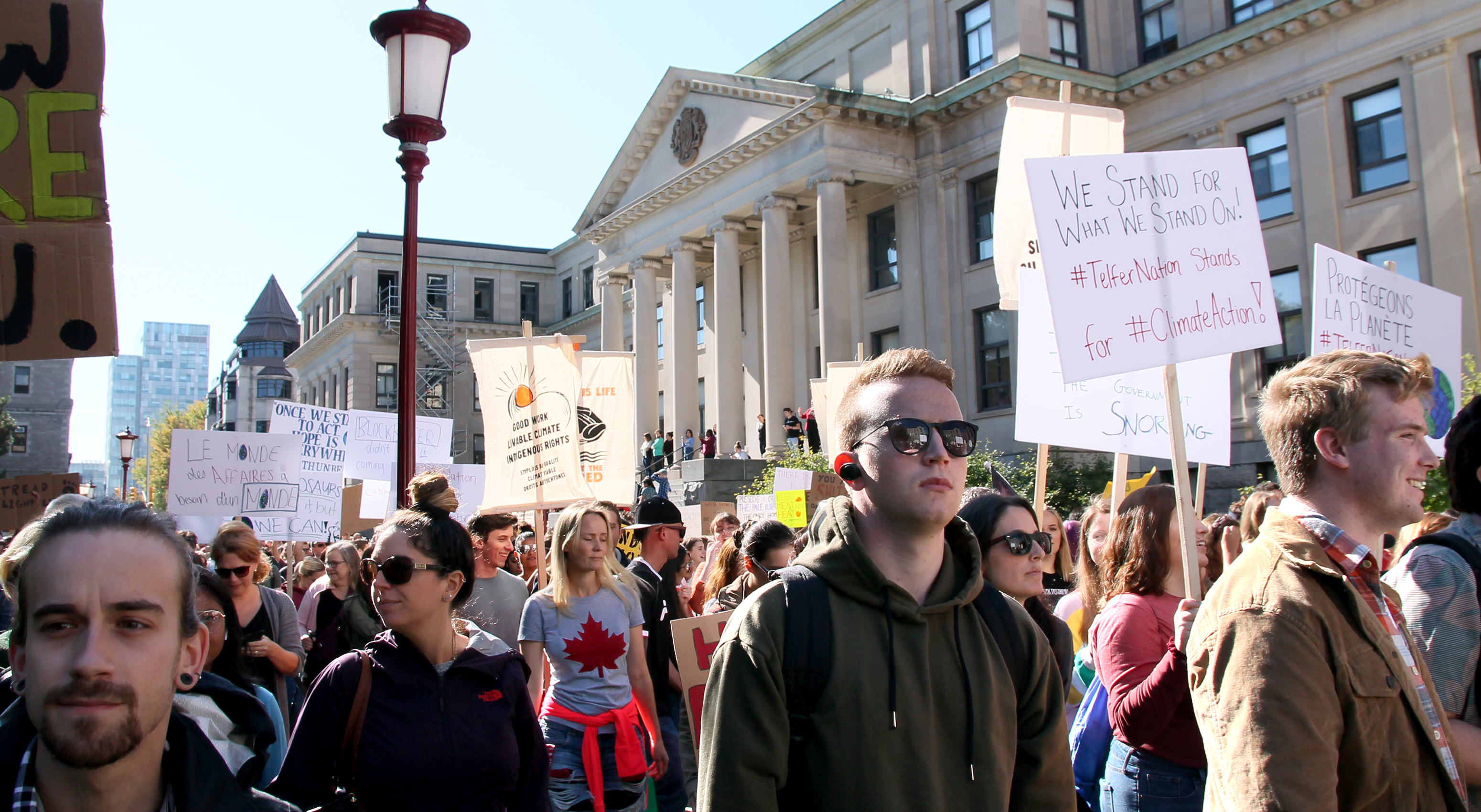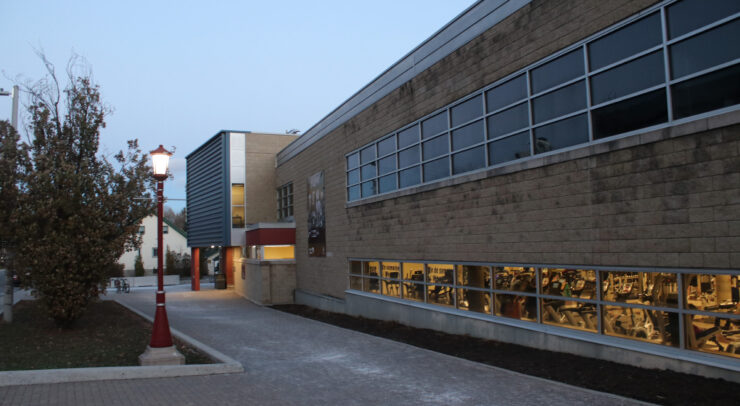University of Ottawa students were among the thousands of impassioned people from across the city who showed up for the future on Friday. In the face of the emergency that is the climate crisis, the U of O community came together for the Global Climate Strike to show they’re ready to fight to save the planet.
It was hard not to feel a deep sense of joy watching a march led by young people shut down some of the busiest streets in Ottawa, proudly taking their anger toward elected officials and publicly channelling it toward fighting for change. But for some, the university’s response to the powerful global movement cast a shadow over the day.
To be fair, the U of O administration took a good step forward and deserves praise for encouraging students to attend the march, and claiming to accommodate those who did. However, the university ultimately did not go far enough. The administration should have cancelled classes during the march to provide the opportunity for all members of the community, including professors and staff, to attend.
The fact that the university did not cancel classes entirely suggests they’re not fully grasping the scope of the crisis the world is facing, nor the importance of widespread mobilization and climate justice movements. It was also a missed opportunity to give the movement a boost of institutional support that could be key to its success.
A common counterpoint we’ve heard from students is that cancelling classes could have meant an extra day of class popping up at the end of the semester or even more work for professors and students to make up for missed lecture time. It could also mean wasted money for students if they paid for a class that never took place.
These are important concerns, but we are firm believers that the university could have found a solution that worked for everyone. The university already has Policy 87 in place (for temporary interruptions of university activities at a faculty, school or service) that could have been used during the climate strike for ease of the process.
In practice though, a solution could have been as simple as asking professors to post their lecture material online or to readjust a slot of lab time before the end of the semester to fit in material that wasn’t covered. Montreal’s Concordia University made it work — why couldn’t we? The U of O’s Institute of the Environment did too — why couldn’t the university as a whole do the same?
The heart of the issue at hand was brought to light by a number of our fellow students who attended the climate strike: Missing a few hours of class won’t matter in the long run if the climate crisis isn’t stopped, and the Earth and humanity succumb to its crippling consequences. Is it even worth debating the consequences of missing three hours of a class or lab if the climate crisis leads to the world’s collapse?
The ongoing impacts of the climate crisis and the toll it’s taking on millions of people across the globe — many of them Black, Indigenous, people of colour — and ecosystems they live in speaks to the need for rigorous and constant mobilization.
Greta Thunberg, the 16-year-old Swedish climate activist who inspired the global wave of strikes, said it best during her speech at the United Nations Climate Action Summit on Sept. 23: “People are suffering. People are dying. Entire ecosystems are collapsing. We are in the beginning of a mass extinction.”
“By 2050, at least one in four people will live in a country where the lack of fresh water is chronic or recurrent,” added Autumn Peltier, an Anishinaabe girl from Wikwemikong First Nation, during her address to the UN General Assembly in March 2018.
We are running out of time to tackle the climate crisis. A damning 700-page report from UN experts, released last October, found we have just 12 years to make the monumental changes needed to keep global warming below 1.5 C. The report drew together 6,000 scientific publications and was reviewed by more than 1,000 scientists.
While hundreds of U of O students likely did attend Friday’s march, thousands of more might have if classes were entirely cancelled. Hundreds of faculty and staff members could have joined them as well. Friday was the U of O’s chance to give the local climate justice movement a major boost, but it missed the mark.
Cancelling classes would have helped provide the type of institutional backing social movements require in reaching success and recognition. The full and concrete support from the major university in the capital of Canada would have set a precedent for other post-secondary institutions across the province and the country.
One thing we know for sure is that this movement is just getting started. A multitude of marches, strikes and protests are bound to take place in the coming years. When the next one does arrive, the U of O should defy the conventional and cancel classes.
Editorials are written by the Fulcrum’s six-person editorial board and express the opinion of the board.





